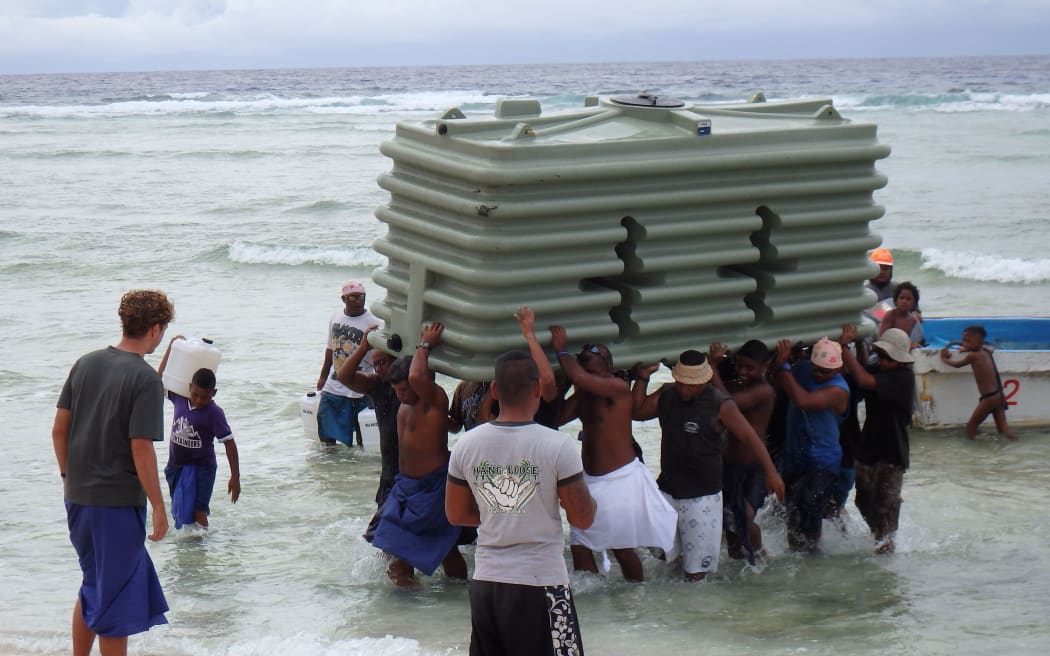A Tongan noble representative has told a Commonwealth Secretariat meeting that countries need to prepare for the possibility of climate change-induced migration.
Lord Fusitu'a was part of a panel that led discussions at the meeting which was held on the sidelines of the UN General Assembly in New York.
Lord Fusitu'a told Koro Vaka'uta he wanted to share about the needs of the Pacific.

Water tanks arriving on Fais in Federated States of Micronesia to help community recover from super typhoon Maysak in 2015 and prepare for climate change in future
Photo: Rupeni Mario
Transcript
LORD FUSITU'A: The main message was two-fold. Number one; because we bear the major brunt of climate change although we bear practically no responsibility for the emissions, we have to engage with international bodies and with metropolitan foreign governments to work towards implementation and enforcement ratification as soon as possible of things like the Paris Agreement [which came out of the UN's climate change conference in December 2015]. So that the causes of climate change and therefore climate change-induced migration are brought down, as well as ensuring that on our end we have as much adaptation as possible so that we are able to institute preventative measures so that we are ready for whatever the effects of climate change may be, within a comprehensive policy, giving our citizens as many options as possible.
KORO VAKA'UTA: You have a legal background I understand, there is a need for some sort of legal framework when it comes to climate change-induced migration isn't there? This has to be done properly.
LF: Most definitely and that's something that I mentioned in my address and which the Baroness Scotland, the new Secretary-General, also mentioned in her closing remarks. My address alluded to the fact that because there are no concrete, definitive legal definitions of climate change-induced migrants or 'climate refugees', it is an area where jurisprudence, as Baroness Scotland mentioned, needs to be developed. There are a spectrum of wide-ranging ramifications that may or may not be obvious at first look. For instance in Tonga, where I'm from, the electorate that I represent in the House and where my estates are are the furthest north. It's the Niua group islands or particularly for myself Niuafo'ou. Being the northernmost it is often vulnerable to the effects of climate change, cyclones et cetera et cetera. As an example, if there was a natural disaster or the effects of climate change and the population of the islands where I am from were forced to migrate, it would not only have an effect on the people who had to migrate but legal ramifications of Tonga no longer having a populous on that island or in that area, would mean that questions would be raised about our claim to that particular island and the borders of our EEZ or economic zone because of that migration. For instance claims may be raised from other Pacific islands that they can lay claim to those islands and therefore encroach on our EEZ and it's these kind of legal issues that at first look may not be obvious but they are most definitely raised by climate change-induced migration. It is something for us to be prepared for and to address.
To embed this content on your own webpage, cut and paste the following:
See terms of use.


